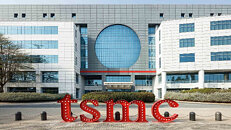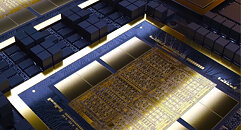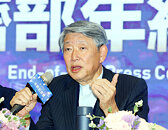T0@st
News Editor
- Joined
- Mar 7, 2023
- Messages
- 3,063 (3.88/day)
- Location
- South East, UK
| System Name | The TPU Typewriter |
|---|---|
| Processor | AMD Ryzen 5 5600 (non-X) |
| Motherboard | GIGABYTE B550M DS3H Micro ATX |
| Cooling | DeepCool AS500 |
| Memory | Kingston Fury Renegade RGB 32 GB (2 x 16 GB) DDR4-3600 CL16 |
| Video Card(s) | PowerColor Radeon RX 7800 XT 16 GB Hellhound OC |
| Storage | Samsung 980 Pro 1 TB M.2-2280 PCIe 4.0 X4 NVME SSD |
| Display(s) | Lenovo Legion Y27q-20 27" QHD IPS monitor |
| Case | GameMax Spark M-ATX (re-badged Jonsbo D30) |
| Audio Device(s) | FiiO K7 Desktop DAC/Amp + Philips Fidelio X3 headphones, or ARTTI T10 Planar IEMs |
| Power Supply | ADATA XPG CORE Reactor 650 W 80+ Gold ATX |
| Mouse | Roccat Kone Pro Air |
| Keyboard | Cooler Master MasterKeys Pro L |
| Software | Windows 10 64-bit Home Edition |
Last November, Taiwan's National Science and Technology Council indicated that it was considering a relaxation of "legal restrictions on transferring leading-edge process technology overseas." TSMC is the nation's most prized chip foundry, but new manufacturing operations are spreading across the globe. The very best node processes—currently TSMC's advanced 2 nm (N2)—have been restricted to home turf, yet global tensions have prompted the Taiwanese government to reconsider its guarded approach. A freshly published Taipei Times report has focused on an important announcement made at a recent government press conference. Taiwan's Minister of Economic Affairs of Taiwan, J.W. Kuo, stated that TSMC is now allowed to manufacture 2 nm chips on foreign soil—according to him, the foundry behemoth is "cautiously" evaluating an investment of roughly $28 to 30 (USD) billion into 2-nanometer production facilities Stateside.
His colleagues have worked hard—in the past—on preserving the country's "Silicon Shield," but fresh adjustments are sweeping in. Kuo commented: "those were old-time rules. Times have changed." TSMC's—allegedly costly—North American hub is reportedly marked down for a "by 2030" push into 2 nm process territories. Taiwan's Economic Affairs minister continued with his reasonings: "Private businesses should make their own business decisions based on their own technological progress...The basic principle is that businesses can make profits from their overseas investments. TSMC is building factories in the US with the aim of serving its US customers, as 60 percent of the world's chip-designing companies are based in the US." He also downplayed concerns regarding possible upcoming shifts in US trade policy making—Taiwan's "strong technological capabilities" are expected to weather the storm. Newly implemented US trade tariffs are expected to have only a "minor impact."



View at TechPowerUp Main Site | Source
His colleagues have worked hard—in the past—on preserving the country's "Silicon Shield," but fresh adjustments are sweeping in. Kuo commented: "those were old-time rules. Times have changed." TSMC's—allegedly costly—North American hub is reportedly marked down for a "by 2030" push into 2 nm process territories. Taiwan's Economic Affairs minister continued with his reasonings: "Private businesses should make their own business decisions based on their own technological progress...The basic principle is that businesses can make profits from their overseas investments. TSMC is building factories in the US with the aim of serving its US customers, as 60 percent of the world's chip-designing companies are based in the US." He also downplayed concerns regarding possible upcoming shifts in US trade policy making—Taiwan's "strong technological capabilities" are expected to weather the storm. Newly implemented US trade tariffs are expected to have only a "minor impact."



View at TechPowerUp Main Site | Source



